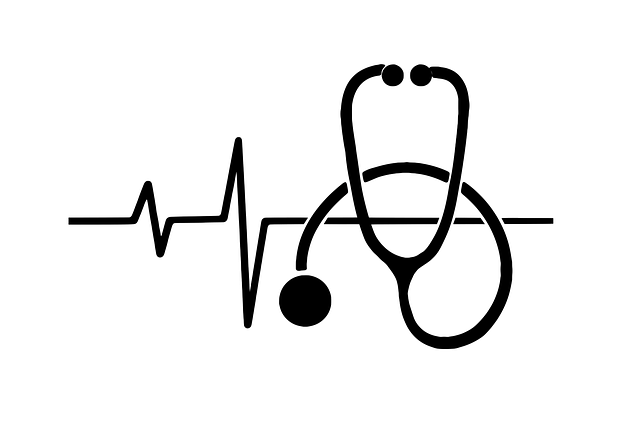In a competitive healthcare market, doctor marketing services are vital for medical professionals to differentiate themselves. A well-designed website acts as a central point of contact, combining visual appeal with functionality. Key features include seamless navigation, high-quality visuals, informative content, and integrated booking systems. This approach builds trust, attracts new patients, and fosters long-term relationships by effectively promoting the practice and educating patients. In today's digital era, mobile-friendly design, SEO optimization, online appointment booking, and robust data security are essential components of successful doctor marketing services.
In today’s digital era, a well-designed website is crucial for doctors looking to stand out in a competitive healthcare landscape. Understanding their unique marketing needs and implementing effective strategies are key to attracting and retaining patients. This article explores essential elements of a successful doctor’s website, from seamless user experience and modern design trends to mobile optimization, search engine visibility, integrated appointment booking systems, and robust security measures. Discover how these components enhance your online presence and elevate your doctor marketing services.
Understanding Doctor's Unique Marketing Needs

In the competitive healthcare landscape, doctors and medical practices need effective doctor marketing services to stand out. Their websites serve as digital gateways, connecting patients with their expertise and care. Unlike generic businesses, doctors have unique marketing needs. They must convey trustworthiness, build patient relationships, and showcase their specialized knowledge. A successful website design for doctors should balance aesthetics with functionality, ensuring it’s user-friendly, mobile-responsive, and optimized for search engines.
By understanding the specific goals and challenges of the medical profession, doctor marketing services can tailor strategies to attract and retain patients. This involves highlighting patient testimonials, displaying advanced qualifications, and showcasing the doctor’s approach to care. A well-designed website becomes an engaging tool that not only markets the practice but also educates potential patients, fostering a connection built on trust and understanding.
Key Elements of an Effective Doctor's Website

A well-designed website is a powerful tool for doctors looking to enhance their patient engagement and grow their practice through effective doctor marketing services. When crafting an online presence, several key elements contribute to making a doctor’s website both informative and successful. Firstly, a clean and intuitive navigation system allows visitors to easily access crucial information, such as service offerings, physician profiles, appointment scheduling, and contact details. This ensures a seamless user experience, encouraging potential patients to explore further.
Additionally, incorporating high-quality visuals, including professional photos of the medical staff and facility, can significantly impact first impressions. Informative content that highlights the doctor’s expertise, areas of specialization, and patient testimonials adds credibility and builds trust. Seamless integration of online booking systems and secure patient portals also streamlines communication, demonstrating a commitment to modern healthcare practices in the digital age.
User Experience: Creating a Seamless Navigation

A well-designed website is essential for doctors looking to enhance their online presence and attract potential patients through effective doctor marketing services. One of the key aspects that sets a medical practice apart from competitors is its user experience, particularly when it comes to navigation. A seamless and intuitive navigation system allows visitors to effortlessly explore different sections of the site, ensuring they can find the information they need without any frustration.
By implementing clear menus, breadcrumbs, and simple call-to-action buttons, doctors can guide patients through their journey from initial interest to scheduling an appointment. Effective navigation also includes optimizing for mobile devices, as many users prefer accessing healthcare services via smartphones. Responsive design ensures a consistent experience across all platforms, fostering a positive user experience that encourages engagement and fosters trust in the doctor’s expertise.
Visual Appeal: Incorporating Modern Design Trends

In today’s digital era, a visually appealing website is paramount for effective doctor marketing services. Incorporating modern design trends can instantly attract and engage potential patients. Clean lines, vibrant color palettes, and minimalist layouts create a user-friendly environment that reflects the professionalism and trustworthiness of medical practices. Such designs not only enhance the overall aesthetic but also facilitate easy navigation, ensuring visitors can find crucial information swiftly.
A well-designed website for doctors should balance aesthetics with functionality. Incorporating trends like responsive design ensures accessibility across various devices, catering to modern patients’ expectations. Interactive elements, such as high-quality images and videos, can showcase medical procedures or the warm atmosphere of a clinic, adding depth to the user experience. Ultimately, these visual appeals contribute to building a strong online presence, fostering patient connections, and driving successful doctor marketing strategies.
Optimizing for Mobile and Search Engines

In today’s digital era, having a mobile-friendly website is no longer an option but a necessity for doctors and medical practices looking to reach and engage with their patients. With many individuals preferring to conduct searches on their smartphones or tablets, optimizing your site for mobile devices ensures accessibility and enhances user experience. Responsive design, which adapts content to different screen sizes, is key. This means patients can easily navigate through appointment scheduling, service information, and contact details without any frustration.
Additionally, search engine optimization (SEO) plays a vital role in doctor marketing services. By employing effective SEO strategies, medical websites can rank higher on search engine results pages (SERPs), increasing their visibility to potential new patients. Targeting relevant keywords related to medical services and locations attracts the right audience. For instance, using terms like “best cardiologist near me” or “pediatrician in [city name]” helps optimize for local searches. Regularly updating content with valuable information also keeps the site attractive to search engines, encouraging more organic traffic.
Integrating Online Appointment Booking Systems

In today’s digital era, online appointment booking systems are a must-have for doctor marketing services. These tools streamline patient scheduling, enhancing convenience and accessibility for both parties. By integrating such systems into their websites, doctors can efficiently manage their appointments, reduce no-shows, and improve overall practice efficiency.
A well-designed online booking system should be user-friendly, secure, and seamlessly integrated into the website’s existing design. It should allow patients to book or change appointments with ease, receive automated reminders, and offer 24/7 accessibility. Such features not only improve patient satisfaction but also contribute to better doctor marketing services by encouraging more individuals to utilize the practice’s online resources.
Security and Privacy Measures for Doctor's Websites

For doctors looking to establish an online presence, prioritizing security and privacy is paramount, especially when offering doctor marketing services. Patients share sensitive health information on these websites, making data protection a top concern. Implement robust encryption protocols like HTTPS to safeguard patient data during transmission. This standard ensures that even if there’s a breach, the stolen information remains unreadable without the decryption key.
Furthermore, comply with healthcare regulations such as HIPAA (Health Insurance Portability and Accountability Act) in the US or GDPR (General Data Protection Regulation) globally. These regulations outline strict rules for collecting, storing, and sharing patient data. Regularly update website security features, employ firewalls, and use secure hosting environments to create a fortified digital environment that instills trust with potential patients seeking doctor marketing services.
